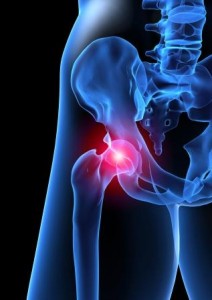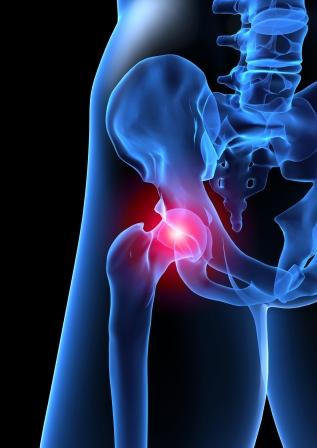 Chronic pain is one of those conditions that affects every part of life but remains invisible to those who aren’t going through it. I have been living with bouts of chronic pain for my entire life, but I notice now that I’m into my 30s, the situation is getting worse. That’s just the natural progression of age, although people with chronic pain tend to feel like their bodies age faster than other people. I take enough pills for a woman beginning the elderly phase of life. The thing of it getting to me is that I had a pattern of normalcy and I could live with the level of pain in my body, but beginning this premature aging process means I’m uncomfortable much more often and I don’t know how to establish a new sense of normalcy.
Chronic pain is one of those conditions that affects every part of life but remains invisible to those who aren’t going through it. I have been living with bouts of chronic pain for my entire life, but I notice now that I’m into my 30s, the situation is getting worse. That’s just the natural progression of age, although people with chronic pain tend to feel like their bodies age faster than other people. I take enough pills for a woman beginning the elderly phase of life. The thing of it getting to me is that I had a pattern of normalcy and I could live with the level of pain in my body, but beginning this premature aging process means I’m uncomfortable much more often and I don’t know how to establish a new sense of normalcy.
The main source of my particular pain is osteoarthritis, which pretty much comes with the territory where my disability is concerned. It began when I was about 6-years-old in my feet and hips. Those are the parts of my body most affected by my disability. Over the years, the osteoarthritis pain spread into my hands, my knees, my shin bones, and became much worse in my feet and hips. Most recently, I’ve found new bouts of pain in my spinal column. I’m not sure how much further it can spread before my whole body is a big arthritic mess. Treatment has varied from a lot of different pills to joint injections with combinations of steroids and pain blockers. I’ve also had various surgeries meant to stabilize my body enough to relieve things. Some treatments have helped. Some have not.
One thing that doesn’t get talked about is the way physical pain affects the mental condition of a person. Chronic pain and depression go hand-in-hand. Not only that but being in pain also increases anxiety, irritability and makes it difficult to maintain personal relationships, jobs and self-worth. These are all factors written about in studies about pain. I have experienced all of these issues and I notice that everything weak in my mental condition becomes weakened even more when my pain level goes up. Every single one of my personal relationships has been affected one way or another. Pain causes me to feel sick to my stomach, so I get clammy and often disoriented if it’s particularly severe. Trying to hold down an intelligent conversation when you’re in pain, sick and disoriented is exceedingly difficult. Then I get mad at myself and that becomes a short-tempered issue. So when you know someone who has chronic pain and their behavior becomes short-tempered, it’s not about anything you did. It’s usually frustration from within about the situation. Knowing that no matter where you go or how you try to make it better, you’ll never get away from the pain, and it does things to your mind. Sometimes people understand but there are some who don’t and they can’t be blamed for it. It’s so difficult to understand a condition that can’t be seen. There is a lot of guilt that comes with chronic pain as well because your body simply won’t allow you to do all the things you want to do, which can disappoint other people.
A benefit, or perhaps a curse, with aging is the new ability to recognize that perhaps doctors don’t actually know everything that is best for you. I’ve had a previous doctor throw narcotics at me rather than get to the cause of my pain, which created a severe addiction to Fentanyl patches and Oxycodone. Long story short and battles with a subsequent alcohol addiction later, all of my medications are now supervised. The injections of steroids and pain blockers in my hip joints helped a lot, but there were strange side effects. I have become concerned in recent years that, while pills, injections and surgeries provide some relief, I don’t really know what the side effects are doing to the rest of my body. I never really thought to ask. You go to doctors for help and you trust them to steer you in the right direction, often on blind faith. This is not to say they’re giving you things to intentionally hurt you though. I’m just beginning to wonder if I’ve been presented with all of the options, including natural options.
So as I’ve begun looking at natural options like turmeric and fish oil, I see that I’m in over my head. An expert would be helpful to explain such options to me, yet there seems to be this position in Western medicine that natural remedies do no good. Those of us who are concerned about the damage injections and narcotic medications are doing to our organs don’t have much in the way of guidance toward alternate treatments. It is my belief, after venturing into being more proactive in my care, that Western medicine should be more willing to embrace treatments that don’t necessarily come from big pharmaceutical companies. I’m not against Western medicine at all. I just feel that there should be more of an effort to incorporate natural treatments into more traditional treatments. Doctors have the ability to help people understand which natural treatments might have adverse reactions with their current medical plans. I’ve heard there are doctors out there who welcome more individualized care plans but I personally have never been a patient of any such doctors.
One of my biggest goals in the upcoming new year is to get a better grip on my pain issues. This is a world where nothing is going to change if you don’t take the action to change it yourself, so I need to be more proactive in working with doctors on my care plan instead of passively accepting whatever treatment they offer. A few friends in similar situations have recommended pain management specialists in my part of Georgia who are willing to look at different ideas like anti-inflammatory diets and supplements like turmeric and omega-3 fish oil. For the time being, I will agree to another round of injections in my joints if only to give my body a break and my mind time to strengthen again. Another form of traditional treatment that I can’t avoid is surgery. I talked about having surgery a couple of years ago but it became evident that my mother’s need for a hip replacement was more important to get through first. Now that she’s healed, we’re back to my feet. I was born with clubfeet and I had surgery when I was a baby, but in the 28 or 29 years since then, my feet have reverted back to the painful contorted position. I’ll spare you the gory details but needless to say, correcting clubfeet is messy, painful and highly invasive. It will improve my quality of life in the long run, so it must be done. In the mean time, I can start the anti-inflammatory diet and research supplements that might provide some long-term relief without jacking up my organs.
The moral of the story?
Don’t sit passively by when your gut is telling you that your doctors are going down the wrong road. You have a right to speak up and suggest ways to individualize your care plan if you feel better about going in a different direction. I also urge you to research the long-term side effects of the medications you’re taking and weigh the pros and cons with a more educated opinion. If you feel your care plan is great as it stands, go on with it! If you have lingering questions, don’t be afraid to seek answers!
Read More















